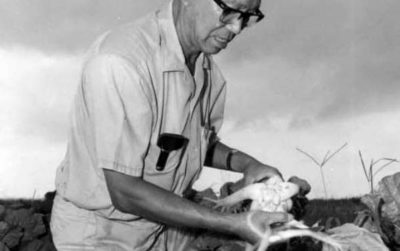African Food Plants
Florida foods from across the Atlantic
African food crops have influenced Florida agriculture for several centuries, and a wide variety of African plants continue to grow in home gardens throughout the Sunshine State. Many African plants are easy to grow in poor soil and in hot summer temperatures. African plants also offer an inexpensive source of delicious and nutritious food. It is easy to bring history to life in the home garden and in the kitchen by growing and preparing African-inspired Florida folk foods. Culturally significant recipes not only offer more meaningful ways to prepare meals, they often provide a more cost-effective and efficient way to integrate healthier food choices.

 A beginning gardener can plant the path to better nutrition with African food crops such as yams, roselle, okra, watermelon, celosia, pigeon peas, and aloe. The Africa in your Garden and on your Table: Connecting food and culture for healthier choices trifold brochure provides a list of African plants that are suitable for a quick and easy garden to grow African foods at home. It is available for download for free and low-cost print copies are available to order for distribution.
A beginning gardener can plant the path to better nutrition with African food crops such as yams, roselle, okra, watermelon, celosia, pigeon peas, and aloe. The Africa in your Garden and on your Table: Connecting food and culture for healthier choices trifold brochure provides a list of African plants that are suitable for a quick and easy garden to grow African foods at home. It is available for download for free and low-cost print copies are available to order for distribution.
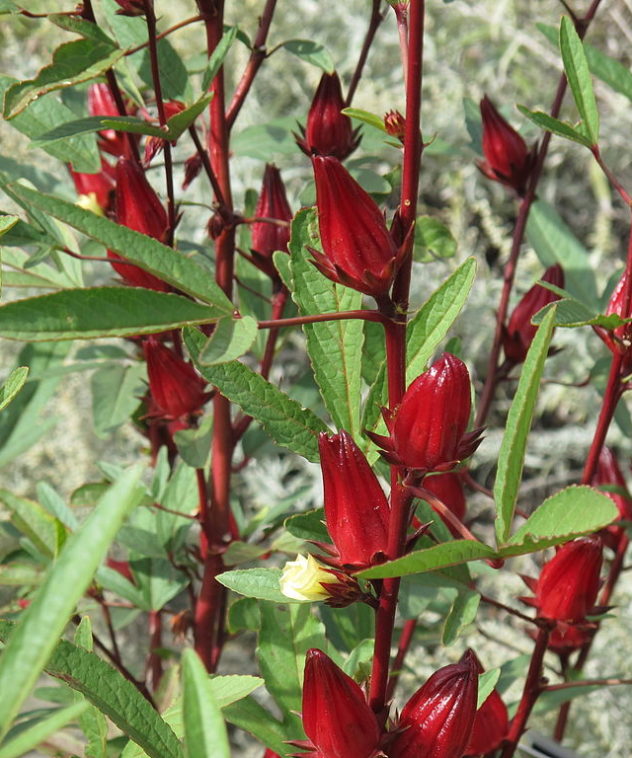
Roselle
Hibiscus sabdariffa
Roselle, also called Sorrel, is a beautiful and hardy bush with edible leaves and flowers that have a cranberry-like taste. The leaves add zing to salads, and the flowers can be eaten raw, preserved in a jam, or dried to make a tangy red tea served hot or iced.
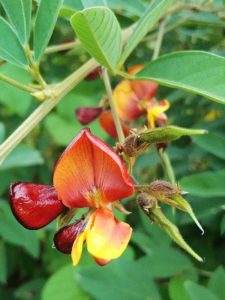
Pigeon Pea
Cajanus cajan
Pigeon pea is a tall, drought-tolerant plant with beautiful flowers. The peas are cooked in stews, and they are a good source of protein, fiber, thiamine, copper, magnesium, folate, phosphorus, potassium, and manganese.

Sweet Yams
Dioscorea spp.
Sweet yams are easy to grow and store. They can be prepared in pies, cut into fries, mashed, baked, and stuffed. They are rich in vitamins C, B5, manganese, folate magnesium, potassium, thiamine, and copper.
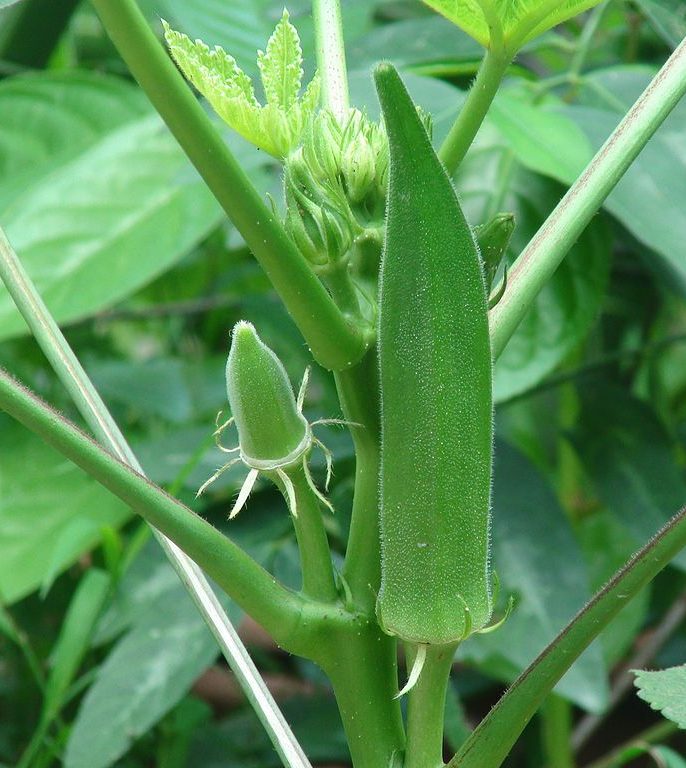
Okra
Abelmoschus esculentus
Okra thrives in the summer heat. It is often fried and used as an ingredient in African gumbo. Okra is rich in vitamins A, K, C, and B6, as well as in protein, potassium, folate, thiamine, and magnesium.
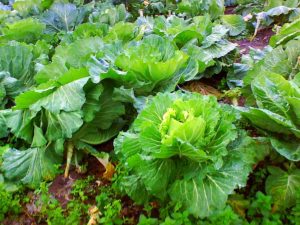
Collards
Brassica oleracea var. viridis
Collards are a leafy green that is rich in vitamins and minerals, and have a delicious, mild, cabbage like flavor. Collards grow best in well-drained soil and direct sun. They tolerate freezing temperatures as well in hot summer weather which makes this an ideal year-round food crop.

Cock’s Comb
Celosia spicata
Cock’s comb adds a splash of vibrant color to the home garden while providing a nutritious source of leafy greens for salads, soups, and stews. The hardy and drought-tolerant plant is native to West Africa, and the easy to grow plant is a common staple food throughout the region.
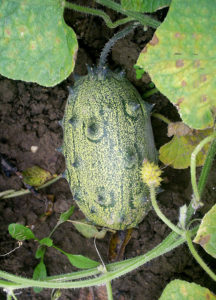
Horned Melon
Cucumis metuliferus
A viny plant with horned melons adds a tasty and unique feature to the home garden. The vine is comprised of heart-shaped leaves and an abundant yield of horned fruits that are a refreshing and healthy addition to shakes and smoothies. It grows well in the summer heat and survives drought conditions. Although the horns are not prickly to touch, they are a great deterrent against vermin.

Watermelon
Citrullus lanatus
Watermelons need space to grow on a vine. They can be eaten fresh in salads and smoothies, or frozen into popsicles and cubes. The rinds can be pickled. Watermelons are rich in water, simple sugars and fiber.
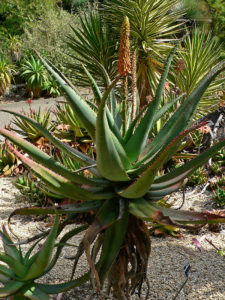
Aloe
Aloe spp.
A wide variety of different types of aloe grow well in dry soil. Aloe is known for cosmetic and medicinal uses, but it is also a popular ingredient to refresh beverages. It contains vitamins A, C, E, and B12. It is also a good source of folic acid, choline, and amino acids.

